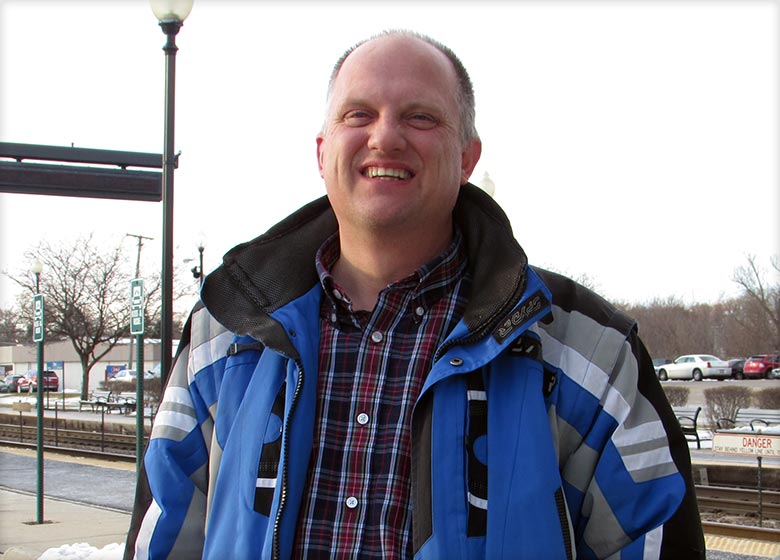Putting the kibosh on GERD: Learn how Scott Stordahl was able to stop taking PPI meds
January 1, 2019

For as long as Scott Stordahl can remember, he had heartburn. “Even when I was a little kid, I was told to drink water and the heartburn would go away,” he says.
By the mid-90s, Stordahl was diagnosed with a hiatal hernia and gastroesophageal reflux disease (GERD), a condition in which stomach contents leak backwards from the stomach into the esophagus. The esophagus becomes irritated, causing heartburn and acid reflux. Stordahl started taking proton pump inhibitor (PPI) medications to treat GERD. The medications provided some relief, but if he missed his daily 40 milligram dose, the symptoms returned.
Fast forward 20 years and countless prescribed pills, Stordahl decided enough is enough. “I was concerned about the long-term effects of being on the medication,” he says. “It was time to bite the bullet and see if I had other treatment options.”
Stordahl scheduled a consultation with Willis Parsons, M.D., Medical Director of the NCH Gastroenterology Center. “I appreciated Dr. Parsons’ thorough approach,” Stordahl says. “Just knowing I had heartburn wasn’t enough. I underwent a number of tests to determine if there was an appropriate procedure to treat my GERD.”
Dr. Parsons says Stordahl was a candidate for a transoral incisionless fundoplication (TIF) procedure because of his long-standing acid reflux history, desire to discontinue PPI medications and the results of his acid reflux testing.
“Patients who suffer from GERD should consider anti-reflux procedures, such as TIF, as an alternative to managing their condition, especially if they experience adverse effects from medication,” Dr. Parsons says.
In October 2016, Dr. Parsons performed the TIF procedure at NCH using a special device attached to an endoscope, which enabled him to reshape and reconstruct Stordahl’s gastroesophageal junction so that it functions properly.
Following the hour-long procedure, Stordahl spent one night at the hospital before going home and beginning a strict, all-liquid diet for the first two weeks. Just five days after the procedure, Stordahl returned to his job as an emergency response manager.
Dr. Parsons emphasizes it’s important to follow strict dietary guidelines because the esophagus experiences inflammation after the procedure.
Nearly six months after the TIF procedure, Stordahl no longer takes PPI medication to combat GERD. He still has the occasional bout of acid reflux, but now he only needs an antacid to calm any discomfort. “Mr. Stordahl had vast improvement in his acid reflux symptoms,” Dr. Parsons says.
Stordahl also learned to better manage his symptoms by avoiding tomato-based, acidic and spicy foods. And out of habit, he continues to follow one tip for managing GERD he learned long ago: eating an early dinner. Stordahl always looks forward to commuting home to Cary on the train for early suppers with his family.
Learn more about testing and procedures for GERD at nch.org/refluxrelief.
No case is the same, results may vary.